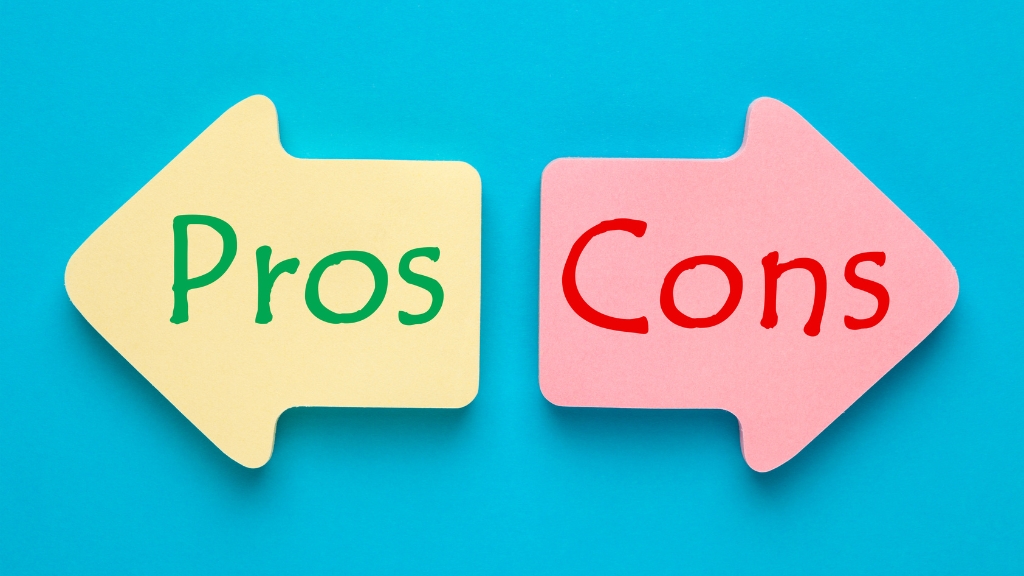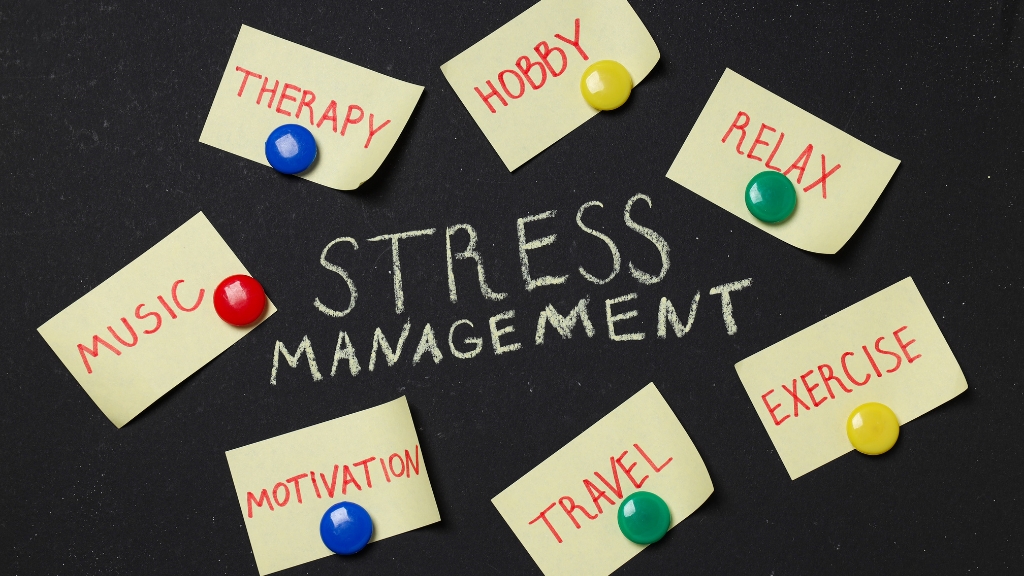
Understanding Electronic Health Records: Revolutionizing Counseling Facilities with Intelligent Healthcare Solutions
Imagine walking into a counseling facility with a patient’s scattered medical records only to find yourself lost in the labyrinth of paperwork. Enter the world of Electronic Health Records (EHRs), which are revolutionizing healthcare management and bringing a new level of efficiency to patient care. Counseling facilities, in particular, can benefit tremendously from adopting EHR systems, as they streamline patient information and improve communication among healthcare professionals.
EHRs are digital versions of patient medical histories, diagnoses, medications, and treatment plans, among other essential data. These comprehensive medical records not only enhance medical decision-making but also automate and optimize provider workflows. In the context of counseling facilities, EHRs help practitioners provide better care by facilitating seamless access to patient data and enabling informed treatment choices. As you dive into the fascinating realm of EHRs, prepare for a journey that unveils the remarkable potential of these intelligent healthcare solutions.
The Foundation of Electronic Health Records
In the world of healthcare, especially within counseling facilities, the efficiency and accuracy of patient data management play a crucial role. One key factor in streamlining this process is the use of Electronic Health Records (EHRs). Let’s dive into the foundation of EHRs and how they differ from Electronic Medical Records (EMRs).
What Are EHRs?
EHRs can be described as the superhero version of traditional paper-based patient charts. They are digital records that contain comprehensive patient information, making them available instantly and securely to authorized users. With the ability to share this information across providers and even between different healthcare organizations, EHRs create a seamless flow of data, thereby improving the quality and efficiency of patient care.
In counseling facilities, EHRs not only store records of patients’ medical histories, diagnoses, and medications, but also manage appointments and billing. Ultimately, they provide a more accurate and up-to-date overview of a patient’s health, thus enabling more informed decision-making by healthcare professionals.
EHR versus EMR: The Differences
At first glance, the terms EHR and EMR might seem interchangeable. However, there are some key differences that set them apart:
- Electronic Health Records (EHRs): As discussed earlier, EHRs provide a comprehensive and up-to-date view of a patient’s health. They are designed to facilitate the exchange of information between healthcare providers, which is crucial for counseling facilities dealing with multiple practitioners or collaborative care.
- Electronic Medical Records (EMRs): On the other hand, EMRs are more like a digital version of a patient’s medical chart within a single practice. They usually contain clinical data, notes, and prescriptions, but the scope of the information is limited to a specific healthcare provider or facility. EMRs don’t generally facilitate data sharing between different providers or organizations.
In essence, EHRs are a more advanced, interoperable version of EMRs. Their ability to exchange data and provide a holistic view of a patient’s health makes EHRs an indispensable tool for healthcare providers, including counseling facilities.
By understanding the foundation of EHRs, healthcare professionals can harness the power of technology to improve patient care and streamline operations. With the wide adoption of EHRs across the industry, the future of healthcare management looks brighter than ever.
Exploring the Benefits of EHRs in Counseling Facilities
Counseling facilities are no strangers to the constant flow of patient information and the need for efficient communication among clinicians. Thankfully, Electronic Health Records (EHRs) have become a valuable tool in enhancing the overall experience and workflow for both patients and healthcare professionals alike. In this section, we’ll dive into the key advantages that EHRs offer counseling facilities, focusing on efficiency and workflow improvements.
Efficiency and Workflow Improvements
Reduced Clutter and Streamlined Processes
One of the primary benefits of EHRs in counseling facilities is the way they simplify and streamline processes. With EHRs, gone are the days of bulky, unmanageable stacks of paper files. Instead, healthcare professionals can easily access patient information with just a few clicks. This digital storage system not only frees up physical space but also reduces the chances of misplaced or lost files.
Improved Communication Among Clinicians
Effective communication among clinicians is crucial for providing optimal care in counseling facilities. EHRs enhance communication by allowing for real-time updates and effortless sharing of patient information between healthcare professionals. This improved collaboration translates to faster decision-making, minimal duplication of diagnostic tests, and overall better coordination of patient care.
Time-saving Benefits
EHR systems can greatly impact the speed at which healthcare professionals access and review a patient’s medical history, treatment plans, and allergies. With the ability to quickly provide key information, counselors can focus more on their patients and therapy sessions, rather than spending valuable time digging through paperwork. EHRs also eliminate the need for redundant data entry tasks, enabling clinicians to allocate their time more productively.
Quick Access to Health Information
In counseling facilities, having prompt access to patient information can be critical for diagnosing and treating various conditions. EHR systems offer this ability by housing all essential data in one centralized location, allowing clinicians to retrieve critical information swiftly when required. This ease of access can significantly improve individualized care, thus bringing about better health outcomes for patients.
Enhanced Control Over Patient Care
EHR systems provide counselors with more control over their patients’ care by automating certain aspects of the treatment plan. These systems often come with evidence-based tools that healthcare professionals can use to optimize patient care. By automating parts of the care plan, EHRs ensure that patients receive personalized, up-to-date treatments rooted in the most current medical practices.
In conclusion, EHRs have become an indispensable asset for counseling facilities. They not only streamline workflow and improve communication among clinicians but also provide essential health information promptly and increase the overall control over patient care. By integrating EHRs into their daily operations, counseling facilities can greatly enhance the quality of care they deliver, resulting in satisfied patients and more efficient healthcare practices.
EHR System Features and Functionality
Electronic Health Records (EHR) are revolutionizing the healthcare industry, especially in counseling facilities. These digital records offer a wide range of features and functionalities that improve efficiency and patient care. In this section, we’ll delve into some crucial aspects of EHR systems, focusing on interoperability and patient-centered care.
Interoperability
Interoperability is a critical aspect of EHR systems, allowing different healthcare providers to access and share patient data seamlessly. This feature enhances patient safety and allows for better collaboration among care providers.
- Data Exchange: EHR systems facilitate the smooth flow of information between various entities involved in patient care, such as doctors, nurses, therapists, and pharmacists. This information flow is vital for cohesive treatment plans and ensuring the continuity of care.
- Standardization: EHR systems adhere to industry standards and regulations, such as meaningful use, to ensure consistency across different platforms.
- System Performance: Interoperability relies on robust system performance, ensuring minimal downtime, and instant access to patient records. This feature enables healthcare providers to make informed decisions quickly and effectively.
Patient-Centered Care
EHR systems offer several features that put the patient at the heart of the healthcare process. These features provide both care providers and patients with better access to information and tools to make informed decisions.
- Clinical Decision Support Systems (CDSS): These tools are integrated into EHR systems to help care providers analyze patient data and suggest evidence-based treatment options. CDSS tools bolster clinical decision-making and improve patient outcomes.
- Documentation: EHR systems store detailed patient information, including medical history, diagnoses, medications, allergies, radiology images, and lab results. The clarity of documentation enhances the accuracy of treatment plans and helps prevent errors.
- Orders and Access: EHRs give healthcare providers easy access to patient data and streamline the process of placing orders for medications, tests, and referrals.
By fostering interoperability and a patient-centered approach, EHR systems optimize healthcare processes and enhance the quality of care in counseling facilities. The adoption of these systems leads to more informed decision-making, better collaboration among care providers, and ultimately, an improved patient experience.
Security and Confidentiality
Electronic Health Records (EHRs) play a critical role in improving the efficiency and coordination of healthcare services, especially in counseling facilities. Maintaining the privacy and security of sensitive patient data stored within these systems is a top priority for organizations adopting EHRs. In this section, we’ll discuss the importance of data protection and outline some key strategies to ensure the confidentiality and security of patient information in EHRs.
Protecting Patient Data in EHRs
Understanding the Difference Between EMR and EHR
Before delving into the security measures, it’s essential to differentiate between Electronic Medical Records (EMRs) and Electronic Health Records. While EMRs are digital versions of a patient’s paper chart, containing primarily medical and treatment history, EHRs provide a broader view of a patient’s care, including information from multiple healthcare providers, such as counseling facilities.
Compliance with HIPAA and Other Regulations
One of the primary ways to protect patient data in EHRs is ensuring compliance with the Health Insurance Portability and Accountability Act (HIPAA) Security Rule. HIPAA establishes a set of administrative, technical, and physical security procedures for covered entities to follow, ensuring the confidentiality, integrity, and availability of electronic Protected Health Information (ePHI).
In addition to compliance with HIPAA, counseling facilities should stay informed about any other relevant state or local regulations affecting the confidentiality and security of patient data.
Implementing Evidence-Based Security Tools
Counseling facilities can leverage various evidence-based tools to maintain EHR security. For example, implementing strong authentication protocols, continuously monitoring access to systems, and keeping up-to-date with the latest cybersecurity threats can help protect sensitive information from unauthorized access or data breaches.
Encouraging Patient Portal Use
Patient portals are secure online platforms that allow individuals to access their health records, communicate with providers, and manage appointments. Encouraging patients to use these portals increases engagement and helps promote a better understanding of their own healthcare, while also providing an added layer of security in managing EHR access.
Maintaining Confidentiality in Counseling Facilities
Providing quality care to patients in counseling facilities requires maintaining the confidentiality of their personal and medical information. EHRs should be designed and utilized to facilitate this confidentiality, incorporating features such as role-based access controls, audit logs, and secure messaging.
To summarize, ensuring the security and confidentiality of patient data within EHRs is crucial for the successful adoption and use of these systems in counseling facilities. By understanding the differences between EMR and EHR, complying with HIPAA and other regulations, employing evidence-based security tools, promoting patient portal use, and maintaining confidentiality within the counseling environment, organizations can provide comprehensive, secure, and efficient healthcare services to their patients.
Challenges and Concerns with EHRs
Electronic Health Records (EHRs) are essential tools for modern healthcare organizations, including counseling facilities, to streamline processes and improve patient care. However, despite their numerous benefits, EHRs come with their own set of challenges and concerns that providers need to address.
Implementation and Burnout Issues
One of the primary challenges faced by healthcare providers is the adoption and cost of implementing EHR systems. Implementing EHRs can be both time-consuming and expensive, requiring a significant investment of resources upfront. Furthermore, the transition from paper records to digital forms can be disruptive, especially for smaller facilities and specialists, who may be less familiar with the technology.
EHR implementation strategy is critical for successful adoption. Healthcare professionals need to consider factors such as regulatory requirements, usability, and integration with existing systems. Poorly designed EHRs can be detrimental to clinical workflows and contribute to physician burnout, as they require more time spent on inputting clinical notes and navigating the system.
| Factor | Description |
|---|---|
| Regulatory | Ensuring that the EHR system meets local, state, and federal requirements |
| Usability | Prioritizing a user-friendly interface to minimize frustration and burnout |
| Integration | Seamlessly integrating the EHR system with existing clinical workflows and systems |
Physician burnout is a growing concern in healthcare, and evidence suggests that suboptimal EHR usability can exacerbate the issue Effects of Electronic Health Record Implementation and Barriers to …. Time-consuming data entry, cumbersome navigation, and difficulty retrieving relevant information can leave healthcare professionals feeling overwhelmed and frustrated.
Additionally, while EHRs can improve the coordination of care across medical imaging facilities and specialists, challenges with interoperability and data sharing persist. These barriers can limit the potential benefits of EHRs on patient outcomes, as vital information may not be readily available for providers when treating patients.
In conclusion, while EHRs offer undeniable advantages in streamlining healthcare processes and improving patient care, it’s crucial for organizations to address the challenges associated with their implementation and adoption. By being aware of potential issues and taking proactive steps to address them, healthcare facilities, including counseling centers, can unlock the full potential of EHRs and navigate the path to a more efficient and patient-centered practice.
Selecting and Implementing EHR Solutions for Counseling Facilities
Best Practices
Selecting and implementing an effective electronic health record (EHR) solution for counseling facilities necessitates thorough consideration of various factors to enhance efficiency and deliver intelligent healthcare solutions.
A crucial aspect of selecting an EHR system is ensuring that it is certified by the appropriate authorities, such as the Center for Medicare and Medicaid Services, to qualify for financial incentives. The functionality of the EHR is of utmost importance to streamline processes and minimize medication errors.
Counseling facilities must prioritize the following features when selecting an EHR system:
- Real-time access: Providing immediate and up-to-date information on patients, such as laboratory and test results, effectively monitor their progress, and make informed decisions.
- Integration capabilities: The ability to seamlessly integrate with the facility’s existing infrastructure and external systems, such as referrals and family physician networks, to ensure smooth communication and data exchange.
- Customizability: Adapting the EHR system to meet the unique needs of counseling facilities, addressing specific functionalities like scheduling appointments, billing, and case management.
Implementing an EHR system effectively in a counseling facility requires deliberate steps to minimize resistance and ensure optimal system adoption. Consider these practices to help overcome barriers and enhance overall efficiency:
- Training and education: Equipping staff with proper knowledge and training reduces the risk of burnout, errors, and resistance to change. Establish ongoing educational opportunities to promote the thorough understanding of EHR software and processes.
- Staged implementation: Gradually introduce the EHR system to allow staff to familiarize themselves with the new processes and technology. Start with core features, then incrementally add advanced functionalities over time. This approach minimizes disruption and facilitates a smoother adoption of the system.
- Assess and monitor: Regularly review the usage and performance of the EHR system to identify areas for improvement, address concerns, and recognize opportunities for enhanced efficiency.
In summary, selecting and implementing an EHR solution for counseling facilities involves careful consideration and attention to crucial factors like certification, functionality, and integration capabilities. By following best practices and accommodating specific needs, counseling facilities can benefit from improved efficiency, reduced error rates, and optimized healthcare solutions.
Conclusion
In conclusion, Electronic Health Records (EHR) have become a pivotal component in modern healthcare, especially in counseling facilities. The adoption of intelligent EHR solutions not only enhances the efficiency of healthcare organizations but also ensures improved patient outcomes and streamlined processes.
Healthcare professionals, particularly in counseling facilities, are aware of the challenges faced in maintaining patient records and the importance of accurate, up-to-date information. EHRs address these concerns effectively and create a more uniform approach to patient care. The utilization of such systems empowers organizations to make informed decisions based on comprehensive patient data, ultimately translating to better care for individuals seeking support.
Anecdotal evidence from counseling facilities adopting EHR solutions confirms the positive impact on day-to-day operations. For instance, one counseling facility reported a significant decrease in paperwork and time spent on administrative tasks, allowing therapists to focus more on patients’ well-being. Additionally, healthcare providers experienced a reduction in errors and more seamless communication within the organization, thanks to EHR implementation.
It is important to note that the effective use of EHRs comes with certain challenges, such as initial costs and system transitions. However, organizations that have embraced these cutting-edge systems report that the long-term benefits far outweigh the initial hurdles.
In the rapidly evolving world of healthcare, staying up-to-date with technological advancements is crucial. Embracing EHR solutions, specifically tailored to the needs of counseling facilities, ensures that these organizations can continue to offer top-notch patient care while streamlining their processes. So, as the famous saying goes, “a stitch in time saves nine”; investing wisely in EHR systems today will reap rewarding and lasting benefits in the future for both healthcare professionals and their patients.
Leave a Reply
One thought on “Understanding Electronic Health Records: Revolutionizing Counseling Facilities with Intelligent Healthcare Solutions”
- AI in Diagnostics: Revolutionizing Early Detection and Accuracy
- How AI and Advanced Analytics Are Transforming Healthcare Outcomes
- Investing with Confidence: The Role of ROI Calculators
- How ROI Calculators Drive Data-Driven Business Strategies
- The Ultimate Guide to ROI Calculators for Business Success
- Making Sense of ROI Calculators: A Comprehensive Guide
- June 2025 (1)
- May 2025 (1)
- October 2024 (2)
- September 2024 (31)
- August 2024 (31)
- July 2024 (27)
- June 2024 (28)
- May 2024 (30)
- April 2024 (33)
- March 2024 (23)
- February 2024 (29)
- January 2024 (3)
- December 2023 (47)
- November 2023 (36)
- October 2023 (23)
- September 2023 (2)
- June 2023 (2)
- May 2023 (13)
- April 2023 (1)





[…] that you know what PulseLogs is and what sets it apart from other EHR apps, you might be wondering who can benefit from using it. The answer is: pretty much anyone who […]